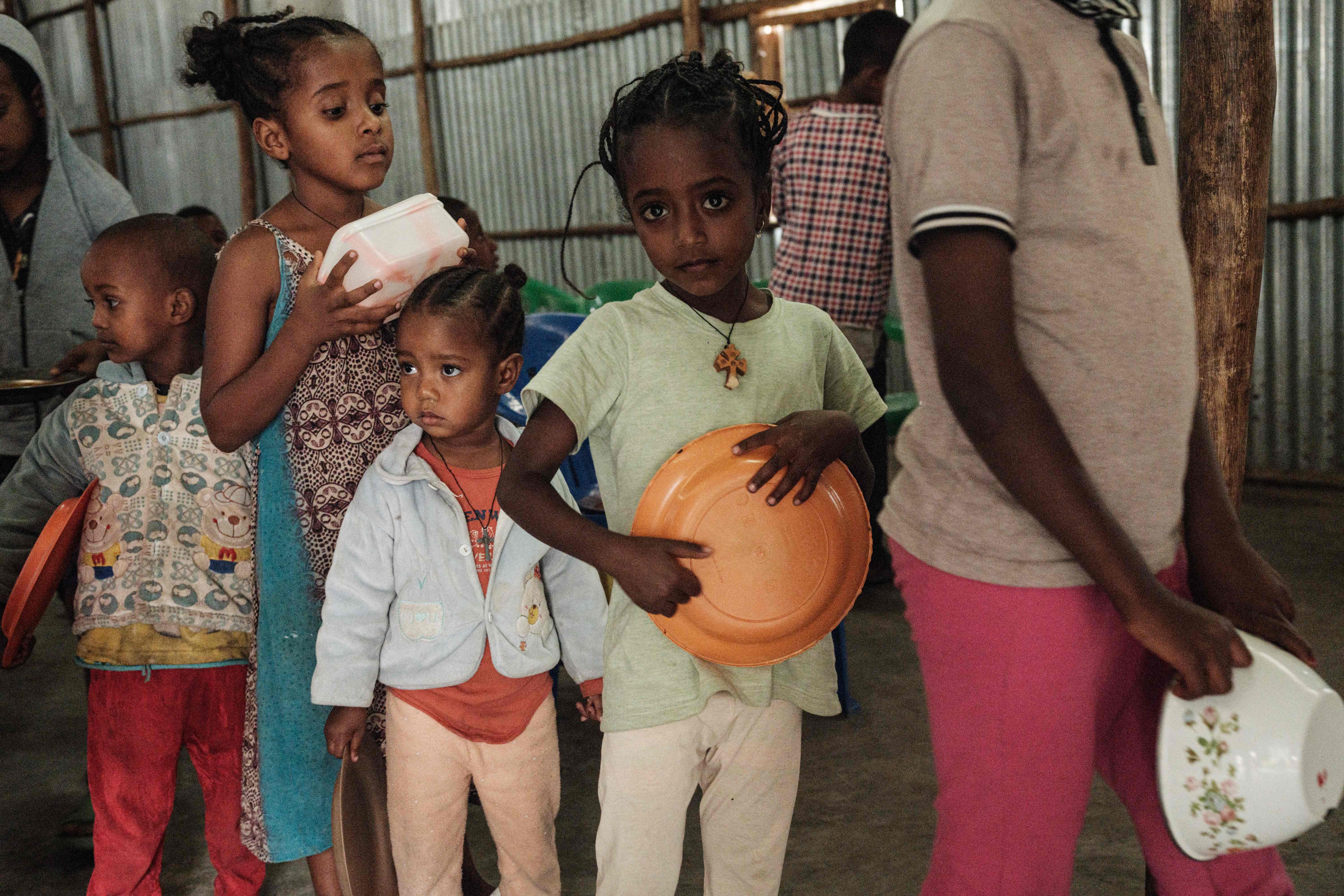Over 100,000 children in Ethiopia’s Tigray could die of hunger, reports UNICEF
The UN says that around 400,000 are living in famine conditions in Tigray

Your support helps us to tell the story
From reproductive rights to climate change to Big Tech, The Independent is on the ground when the story is developing. Whether it's investigating the financials of Elon Musk's pro-Trump PAC or producing our latest documentary, 'The A Word', which shines a light on the American women fighting for reproductive rights, we know how important it is to parse out the facts from the messaging.
At such a critical moment in US history, we need reporters on the ground. Your donation allows us to keep sending journalists to speak to both sides of the story.
The Independent is trusted by Americans across the entire political spectrum. And unlike many other quality news outlets, we choose not to lock Americans out of our reporting and analysis with paywalls. We believe quality journalism should be available to everyone, paid for by those who can afford it.
Your support makes all the difference.The United Nations children’s agency said on Friday that more than 100,000 children in Ethiopia’s northern region of Tigray could suffer life-threatening malnutrition in the next 12 months, a 10-fold increase to normal numbers. UNICEF spokesperson Marixie Mercado said that one-in-two pregnant and breastfeeding women screened in Tigray were acutely malnourished.
“Our worst fears about the health and well-being of children... are being confirmed,” she told a briefing in Geneva.
Spokespeople for the prime minister and a government task force on Tigray - where fighting between rebellious regional and federal forces have continued since November - did not immediately respond to requests for comment on UNICEF’s statement.
Babies like 20-month-old Aammanuel Merhawi are suffering the most. He is a third below normal weight for his age. His feverish eyes glisten and his ribs are visible as he heaves, vomiting supplementary food fed through a nasal tube. All are signs of severe malnutrition.
“My milk dried up,” his mother, Brkti Gebrehiwot, told Reuters at Wukro General Hospital in northern Tigray on 11 July.
Aid agencies say they are about to run out of the formula used to treat 4,000 severely malnourished children every month.
At least three children have died in Wukro hospital since February, nurse Tsehaynesh Gebrehiwot said.
She provided their medical records: four-month-old Awet Gebreslassie weighed 2.6 kilogramnes (5.7 lb), a third of normal weight; one-year-old Robel Gebrezgiher weighed 2 kgs, less than a quarter of normal weight; and Kisanet Hogus, also a year old, weighed 5 kgs - just over half of normal weight.
All died within days of admission.
In Adigrat General Hospital further north, Reuters saw medical records confirming the death of three more malnourished children.
Doctors in both hospitals said they saw between four to 10 severely malnourished children monthly before the conflict erupted in November. Now numbers have more than doubled.
The UN says that around 400,000 people are living in famine conditions in Tigray, and more than 90 per cent of the population needs emergency food aid.
In a statement on Thursday evening, the Ethiopian government blamed Tigray regional forces for blocking aid and said it had stockpiled reserve wheat in the region. It gave no details on the stockpile’s location or plans for distribution.
The TPLF was unavailable for comment but has previously said it welcomes aid.
The UN says Tigray needs 100 trucks of food daily to prevent mass starvation; only one 50-truck convoy has got through in the past month.
Reuters
Join our commenting forum
Join thought-provoking conversations, follow other Independent readers and see their replies
Comments